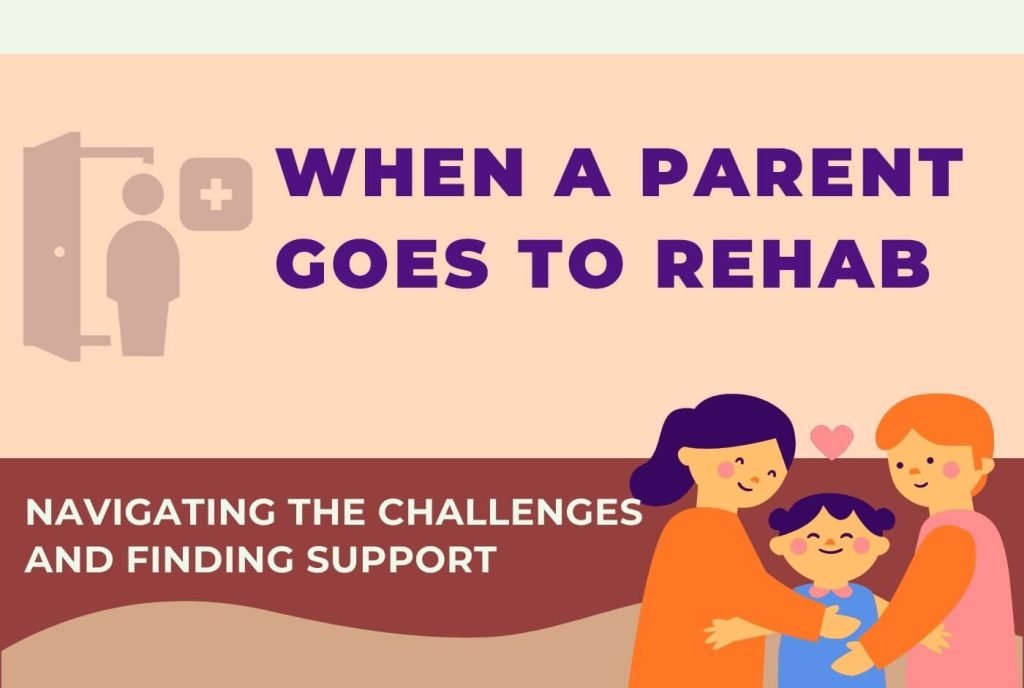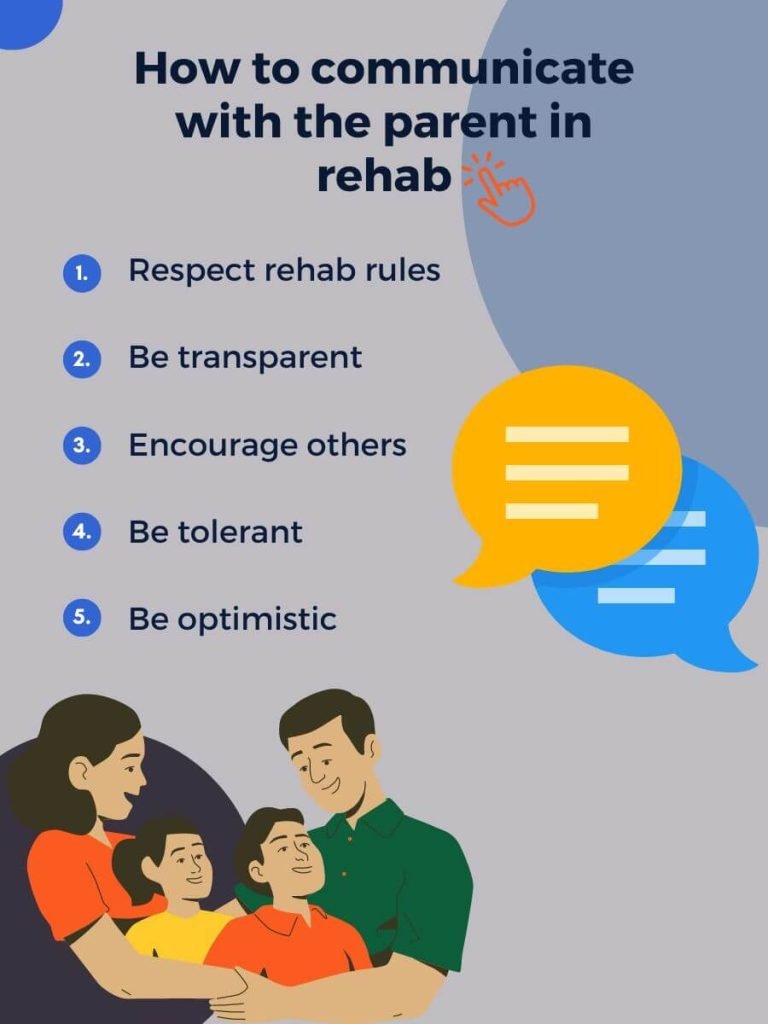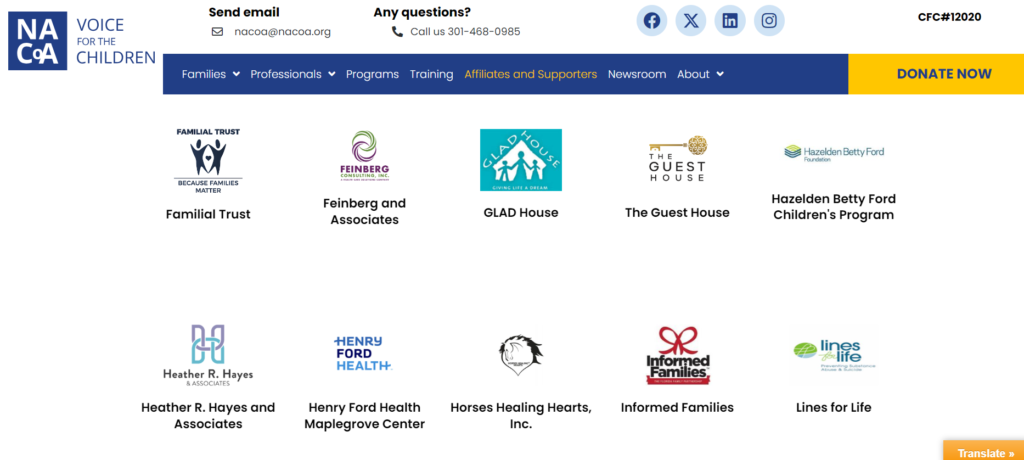As an expert, I must say if you are an addicted parent, then go to rehab without any hesitation.
In 2019, 1.5 million persons 26 or older received substance use disorder (SUD) treatment at a specialist facility, according to SAMHSA. So, why not you!
From my professional experience, I can say rehab and what happens after you return may confuse, unsure about the future, or frighten you. These feelings are common, but you deserve support and direction.
Let’s go through this blog to explore the challenges of supporting yourself as a parent goes to rehab.

Understanding Addiction and its Impact on Families
Addiction is a chronic brain-body disorder. It makes you seek and utilize drugs or behaviors despite the risks. Addiction can alter thoughts, feelings, and behavior.
Physical health, relationships, employment, and income can be affected. It can be worse when you have a child at home.
Co-parenting with an addict is difficult. Addiction can have several consequences on children, depending on age, personality, and resilience. They may experience the following.
- Feeling insecure, anxious, angry, or guilty
- Having low self-esteem or trust issues
- Experiencing emotional or physical neglect or abuse
- Developing mental health or behavioral problems
- Having difficulties in school or social situations
Famous comedian face John Mulaney mentioned in 2014, the year of his marriage, that he had been sober for the last 15 years.
But during the Pandemic 2020, somehow he relapsed and went to rehab in December 2020 for his addiction to cocaine and alcoholism.
And this time, he was serious about his family and knew he needed to overcome to save his upcoming newborn. Also, he got appreciation from close ones.
Source: Jeremy McLellan Comedy

After leaving rehab on the first of 2021, he welcomed his son on the last of 2021. He recently celebrated his 3 years of sobriety at the end of last year.
So, rehabilitation is not impossible when it comes to saving your loved ones.
Dad Needs Therapy: the Hardest Part for Kids
Rehab for father with alcohol addiction is often feeling overwhelmed with guilt and confusion for the child.
As an expert on addiction, I started to realize it wasn’t their fault but the circumstances.
What Happens When a Parent Goes to Rehab? Get Strength Together
The profession of an addiction specialist isn’t that easy. With my years of experience, I can pinpoint that while in rehab, not only the addicted parent recovers and struggles, but also the loved ones and children.
These 3 can happen in most cases-
The Parent’s Journey in Rehab
Rehab for parents is complex. It requires bravery, dedication, and effort. Detox is necessary for you. Nausea, sweating, shivering, and anxiety are withdrawal symptoms.
You must also attend treatment to learn about your addiction, handle triggers and urges, and avoid relapse.
A scheduled program may include group activities, exercise, meditation, and education for treatment.
These might be time-consuming. You need to be strong and control your feelings for loved ones staying outside.
The Child’s Journey in Rehab
Rehab is tough for kids. In most of these types of cases, I noticed they felt angry, sad, and confused when their parents entered rehab.
They weren’t sure how to cope. But over time, they found ways to navigate this difficult journey.
In my experience, the child may have to adjust to living with a relative or friend, attending a different school, or missing activities.
Rehab for single moms can be traumatic for the child and mom both. Uninformed people may judge and stigmatize the child.
How to Communicate with the Parent in Rehab: Make the Path Easy

Parent-child communication is crucial during this period. Communication helps connect, express feelings, and encourage each other.
Communication can be difficult due to rules on when and how it’s possible to talk. Days during rehab for parents, communication tips follow.
- Respect rehab rules. They help parents focus on recovery and avoid distractions.
- Be transparent. Tell each other how you feel and what you need. Don’t lie.
- Encourage others. Encourage progress. Remind of your affection and pride.
- Be tolerant. Expect to improve slowly. Don’t force.
- Be optimistic. Look ahead to the possibilities and responsibilities. Refrain from thinking about what got into treatment.
Resources for Children of Parents in Rehab
Online and local resources can help you. That can help you understand and aid your parents. Some are:
The National Association for Children of Alcoholics (NACOA)
NACOA educates, advocates, and supports alcoholism-affected children and families. Their site has articles, videos, podcasts, and other materials on coping strategies, self-care, communication, and boundaries.
Source: NACoA

A certified counselor can listen and offer support on their helpline (1-888-55-4COAS).
The Nonprofit Children of Alcoholics Foundation (COAF)
COAF helps children and teens whose parents have substance use disorders. Their mentorship, counseling, peer support, and scholarship programs are listed on www.coaf.org.
Visit www.coaf.org/blog to read tales and advice from other kids and teens in your situation.
The Hazelden Betty Ford
This foundation is an effective addiction treatment and recovery provider. Treatment, recovery, and family services are available here and here also.
These have materials on managing a parent’s addiction, helping their recovery, and caring for themselves.
These are some of your resources. Talk to a trustworthy adult such as a teacher, counselor, relative, or friend for support and direction.
You deserve happiness and health, not your parent’s addiction or recovery.
People Also Asked
Can a Mother Lose Custody for Drug Use?
Yes, a mother can lose custody for drug usage if the court believes that her addiction hinders her ability to care for the child or puts her at risk.
The court may require a drug test, substance abuse evaluation, or home study to assess the mother’s drug usage and its impact on the kid. The court may consider criminal, medical, witness, and social worker reports.
But don’t worry, you can get the custody back after proving yourself sober.
Can a Father Lose Custody for Drug Use?
Yes, similar to mothers, fathers can lose custody for drug usage. The court will assess how the father’s drug use affects the child’s best interests.
The court may consider the father’s willingness and ability to seek therapy and recovery.
Does Past Drug Use Affect Child Custody?
No, if a parent can demonstrate long-term sobriety, their drug usage may not affect child custody.
The court may also evaluate the parent’s lifestyle, employment, education, and relationship with the child. However, relapse, neglect, abuse, or violence associated with drug use may impair child custody.
Having a parent in rehab can be difficult, but it can also be healing. Counselors, peers, and online groups can help. Additionally, having a supportive and involved executor can play a crucial role in the beneficiary’s rehab journey. The executor’s role in beneficiary rehab may involve providing emotional support, helping to coordinate treatment plans, and ensuring that the beneficiary has access to necessary resources. By actively participating in the rehab process, the executor can help the beneficiary feel more supported and motivated to make positive changes.
Set appropriate boundaries, manage your emotions, and practice self-care.
Remember that your parent’s addiction is not your fault and that you deserve love and respect. Recovery is possible. You are not alone. Know if you can visit people in rehab.
- What to Pack for 30-Day Rehab? FREE Checklist - May 30, 2024
- Types of Outpatient Rehab: Difference One Should Know - March 28, 2024
- Truth Behind FMLA: Hidden Hurdles of Alcohol Rehab Leave - March 28, 2024